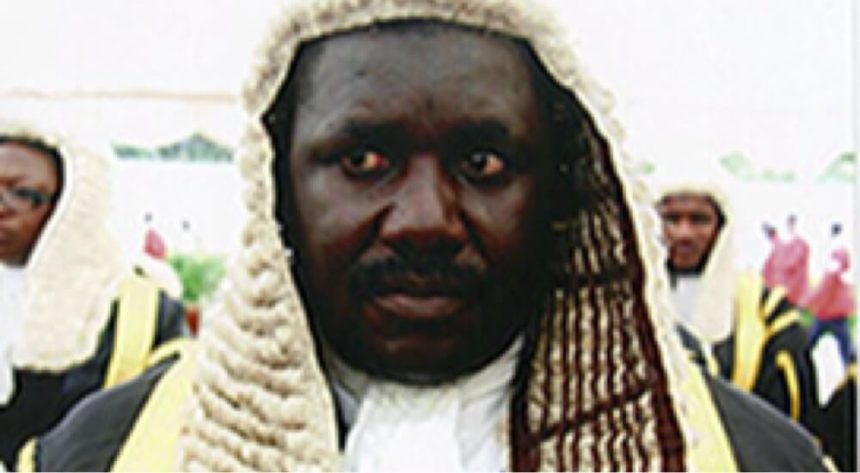Rumours are intensifying that President Bola Ahmed Tinubu is considering appointing Justice Abdullahi Mohammed Liman, a recently retired judge from Nasarawa State as the next Chairman of the Independent National Electoral Commission (INEC). If this turns out to be true, the implications for the credibility of the 2027 general election could be significant.
Although Liman is not widely known to the public, he has been at the center of several high-profile and controversial judicial decisions. Among them is his ruling that halted Kano State Governor Abba Yusuf’s move to reinstate Sanusi Lamido Sanusi as Emir of Kano, an act that inflamed political tensions and triggered legal battles over jurisdiction. Liman also halted the suspension and attempted arrest of APC National Chairman Abdullahi Ganduje over the widely publicized “dollar stuffing” scandal.
His judicial record has prompted both praise and criticism. In Edo State, Peters Omoragbon, a former governorship candidate, accused Liman of delaying a ruling in a case involving INEC. In 2016, his residence in Port Harcourt was among those raided by the Department of State Services (DSS), who claimed to have recovered $2 million in cash. Liman denied the allegations, dismissing them as baseless and saying he would have resigned if such claims were true.
Despite his legal background, what has triggered alarm is not just Liman’s record, but the political context surrounding his possible appointment.
During a recent interview on Arise TV, political figure Buba Galadima warned of “rumours all over the place” suggesting that a retired judge “known for notoriety” may be appointed as INEC Chairman. Though Galadima did not name Liman directly, the description fits. He went further, warning that such a move could “create chaos” and potentially endanger the conduct of future elections.
While Galadima’s language may be exaggerated, it reflects a broader concern: that Nigeria cannot afford an INEC chairman whose independence and impartiality are in question especially not in the run-up to a high-stakes election like that of 2027.
The regional implications are also worth noting. Supporters of the administration have recently circulated a list of past INEC chairmen to argue that the South-South has historically dominated the role, while the North-Central has never produced one. Justice Liman, from Nasarawa State in the North-Central, would address that imbalance. But critics argue that President Tinubu, whose appointments have consistently leaned toward the Southwest, is unlikely to make such a departure from his current pattern.
Moreover, there is concern that Liman’s perceived closeness to influential figures such as Ganduje and former Rivers State Governor Nyesom Wike could further politicise INEC. Appointing someone with such affiliations would set a dangerous precedent—one that risks undermining the commission’s credibility before campaigns even begin.
One curious detail is Liman’s early retirement from the Court of Appeal, even after the judicial retirement age was raised to 70. This has fuelled speculation that he may have stepped down to make himself eligible for a high-level political appointment.
It is important to recall that no president; civilian or military, has ever appointed an INEC chairman from his own ethnic or regional base. That unwritten rule has helped preserve some measure of balance and public trust in the electoral process. Breaking with that tradition now would only deepen existing divisions and fuel suspicions of electoral manipulation.
If Tinubu is seriously considering Justice Liman, he must weigh short-term political advantage against long-term institutional damage. INEC’s legitimacy hinges not only on its constitutional authority but also on public confidence in its leadership. An electoral umpire perceived as partisan would do lasting harm to Nigeria’s democratic process.
As 2027 approaches, Nigeria needs an INEC chairman who is above reproach someone whose appointment will reassure, not inflame. The office demands neutrality, integrity, and an unimpeachable sense of fairness. Anything less will cast a shadow over the next general election and over the president’s own legacy.
By Farooq A. Kperogi
Source : The Nigeria Lawyer



